Tragedy has struck the lives of many people and their families when medical professionals fail to or delay providing a stroke diagnosis. A stroke can result in a person suffering paralysis, reduced mental capabilities, and even death. If you are a medical malpractice lawyer, you like to stay informed on recent case law. A primer on the basic medical terminology associated with strokes may be helpful. You’ll find both benefits in this article.
What is a Stroke?
A stroke is a medical emergency event where a blockage of blood supply or a burst blood vessel damages the brain. Medical professionals may call this area a blood vessel blockage or narrowing an “occlusion.” A stroke can result in irreversible brain damage, long-term disabilities, or even death. There are two types of strokes – ischemic and hemorrhagic.
Ischemic Stroke
Most strokes are ischemic strokes. This type of stroke happens when blood clots or particles interrupt or inhibit blood flow to the brain. Plaque from cholesterol and fatty material accumulation can also block blood vessels. A thrombotic stroke occurs when a clot develops in a narrowed cerebral blood vessel. When a blood clot formed somewhere else in the body breaks away, travels to the brain, and blocks a blood vessel, you are looking at an embolic stroke. An air bubble or foreign substance can also stop-up a cerebral blood vessel, resulting in an embolic stroke.
Brain cells die within minutes when deprived of oxygenated blood during a stroke. Prompt action when a person is suffering a stroke can reduce the damage to the brain.
Transient Ischemic Attack (TIA)
A transient ischemic attack, also called a “mini-stroke,” is an ischemic occurrence that causes the temporary loss of brain function. TIAs can lead to permanent brain function loss – becoming a full stroke.
Hemorrhagic Stroke
The other kind of stroke is called a hemorrhagic stroke. This stroke type occurs when an artery in the brain breaks open or leaks blood into the brain. Seeping blood can accumulate, damaging brain cells with excessive pressure. Other causes of hemorrhagic strokes include high blood pressure and bulges in arteries (aneurysms) that burst.
Vertebrobasilar Stroke
In the case discussed in this article, the patient suffered an ischemic stroke known as a vertebrobasilar stroke. This stroke type happens when plaque builds up and blocks or restricts the two vertebral arteries that start in the spine at back of the neck . These arteries join up to form the basilar artery located at the base of the medulla oblongata – the connection of the brainstem and spinal cord. The basilar artery provides arterial branches to the brain stem, cerebella, and occipital lobes. These brain areas control our unconscious functions like breathing, heart rate, etc. (the autonomic nervous system), conscious level, coordination, balance, and vision.
85% of people that suffer a vertebrobasilar stroke die. These “brainstem strokes” often leave survivors with paralysis and other abnormalities.

Diagnosing Strokes
Doctors employ several methods to diagnose a stroke. First, they look at a person’s medical and family history for risk factors. During a physical, a medical provider will check a patient for symptoms such as confusion, lack of mental awareness, problems with balance, coordination, speaking, and numbed or weakened limbs or face.
Computed tomography CT scans of the brain can reveal any bleeding or damage in the brain from a stroke. Doctors may also use magnetic resonance imaging (MRI) to identify damage to brain cells or tissue. Other imaging methods can find blood vessels in the neck that have become narrowed, an aneurysm, or entwined vessels in the brain. Blood tests and electrocardiograms may also help determine if a person is having or has had a stroke.
With a CT angiography (CTA), medical professionals inject contrast dye into a patient’s bloodstream to enhance the physician’s ability to “see” arteries and veins. CTAs produce 3-D images, allowing radiologists to rotate them for better inspection of cerebral vessels and any problems with them.
Delayed or missed stroke diagnoses can significantly impact a patient’s outcome severity. For example, a doctor’s failure to diagnose a stroke can deprive a patient of the chance to get the clot-busting tPA drug they must receive within three hours of a stroke’s start.
A 2021 study concluded that delays in treating strokes at the hospital may result in more severe impacts on recovery than delays in getting to a hospital.
$75M Award in a Failure to Diagnose a Stroke Lawsuit
On October 20, 2022, a Georgia jury awarded plaintiff Jonathan Buckelew $75 million after finding an emergency room doctor, and a neuroradiologist acted negligently and failed to meet applicable standards of medical care. The jury determined that the emergency room physician was 60% at fault, and the radiologist who missed the arterial blockage shown in a CTA was 40% responsible.
Allegations
In his complaint, Buckelew describes experiencing neck pain, headache, blurred vision, and ringing in the ears for four days after a gym workout. The 32-year-old sought chiropractic treatment for his symptoms. After the chiropractic adjustment to his neck, he collapsed and became unresponsive. After arriving at the emergency room at North Fulton Medical Center, emergency room Dr. Matthew Womack examined Buckelew, who had become alert. Womack ordered a CT of the brain and a CTA of the neck. Roughly 2.5 hours after his arrival at the medical center, neuroradiologist Dr. Waldschmidt read Jonathan’s CTA scan. The neuroradiologist found a potential dissection – inside arterial wall tear — of the right vertebral artery. Plaintiff alleged that the image showed more than that – including abnormalities in both the vertebral arteries and a narrowed right vertebral artery. In addition, the CTA revealed thrombosis of the basilar artery.
Womack consulted a neurologist, Dr. Futrell, also a defendant, on Mr. Buckelew’s condition. Futrell asserted, however, that Dr. Womack did not tell him about the CTA or Jonathan’s recent chiropractic adjustment.
Womack went on to perform a lumbar puncture which showed normal results. Before this procedure, Womack described witnessing Buckelew have a seizure. At about 11:00 pm, Mr. Buckelew was admitted to the ICU with a diagnosis of encephalitis and altered mental status. The next day another doctor in the ICU ordered an MRI that showed Buckelew had suffered a massive non-hemorrhagic stroke, including a basilar artery thrombosis that had blocked blood flow to his brain.
The complaint stated that Buckelew suffered extensive brain damage from the delay in diagnosis and treatment of his stroke. He suffers from Locked-in syndrome, which renders him unable to move any body part other than his eyes. His cognition was not affected. This young man will need 24-hour care for the remainder of his life.
Expert Witness
One plaintiff expert undoubtedly played a significant role in the jury’s findings of the culpability of Dr. Womack and Dr. Waldschmidt. Dr. Anthony A. Marcuso, a distinguished radiologist certified in neuroradiology, opined that Dr. Womack violated medical practices when he did not discuss either the CTA or Mr. Buckelew’s recent chiropractic adjustment with the consulting neurologist, Dr. Futrell.
Dr. Marcuso also stated that neuroradiologist Dr. James Waldschmidt’s failure to detect the obvious basil arterial blockage shown on the October 26, 2016, CTA violated accepted medical practices.
The Right Experts for Stroke-related Cases
Cases like Buckelew remind medical malpractice lawyers that success often hinges on the caliber of expert witnesses. When litigating a failure to timely diagnose a stroke case, lawyers should consider using resources like Cambridge Medical Experts to secure established, respected expert witnesses. Exceptional experts can help you prove that a doctor’s failure to adhere to accepted medical standards in diagnosing and treating strokes constitutes negligence.


